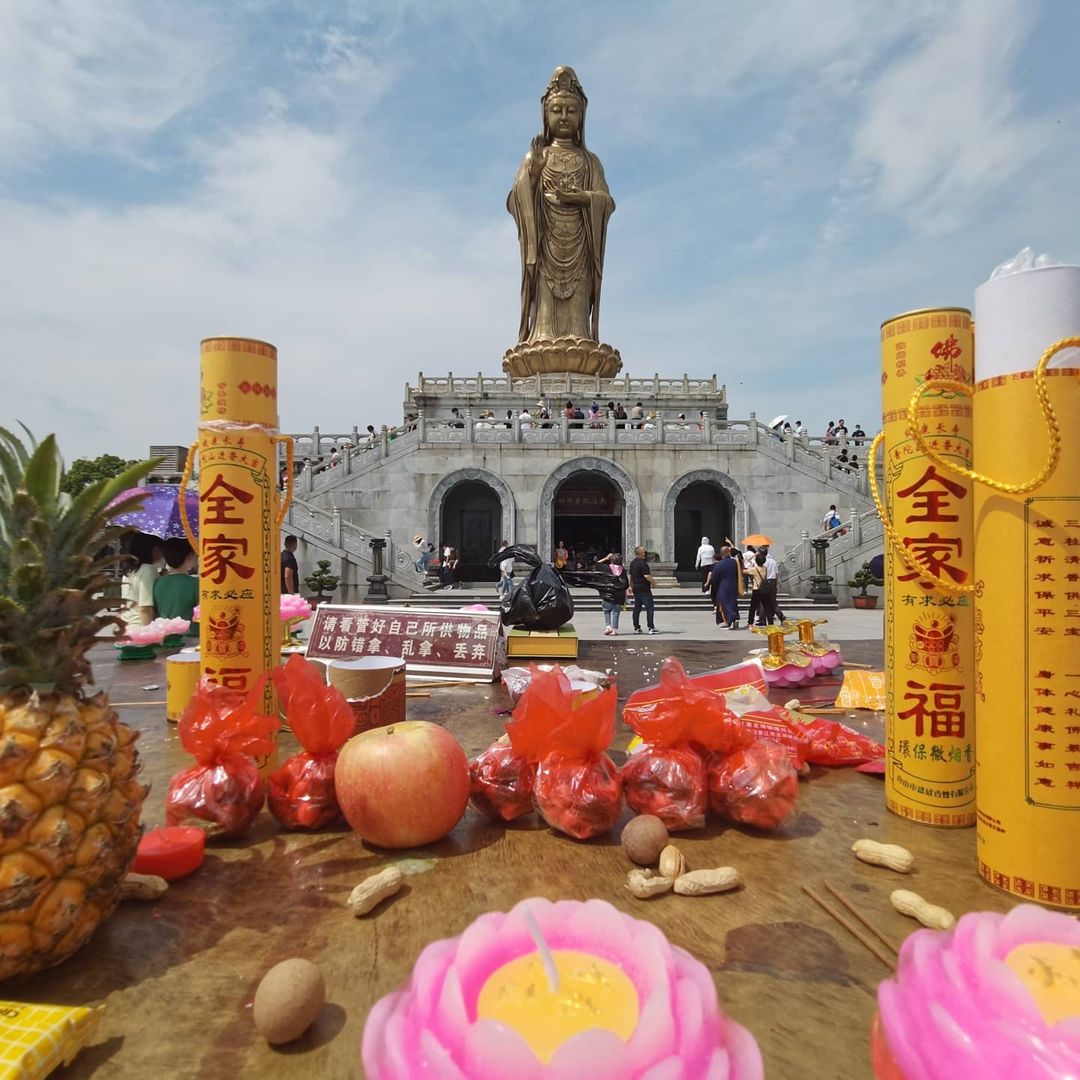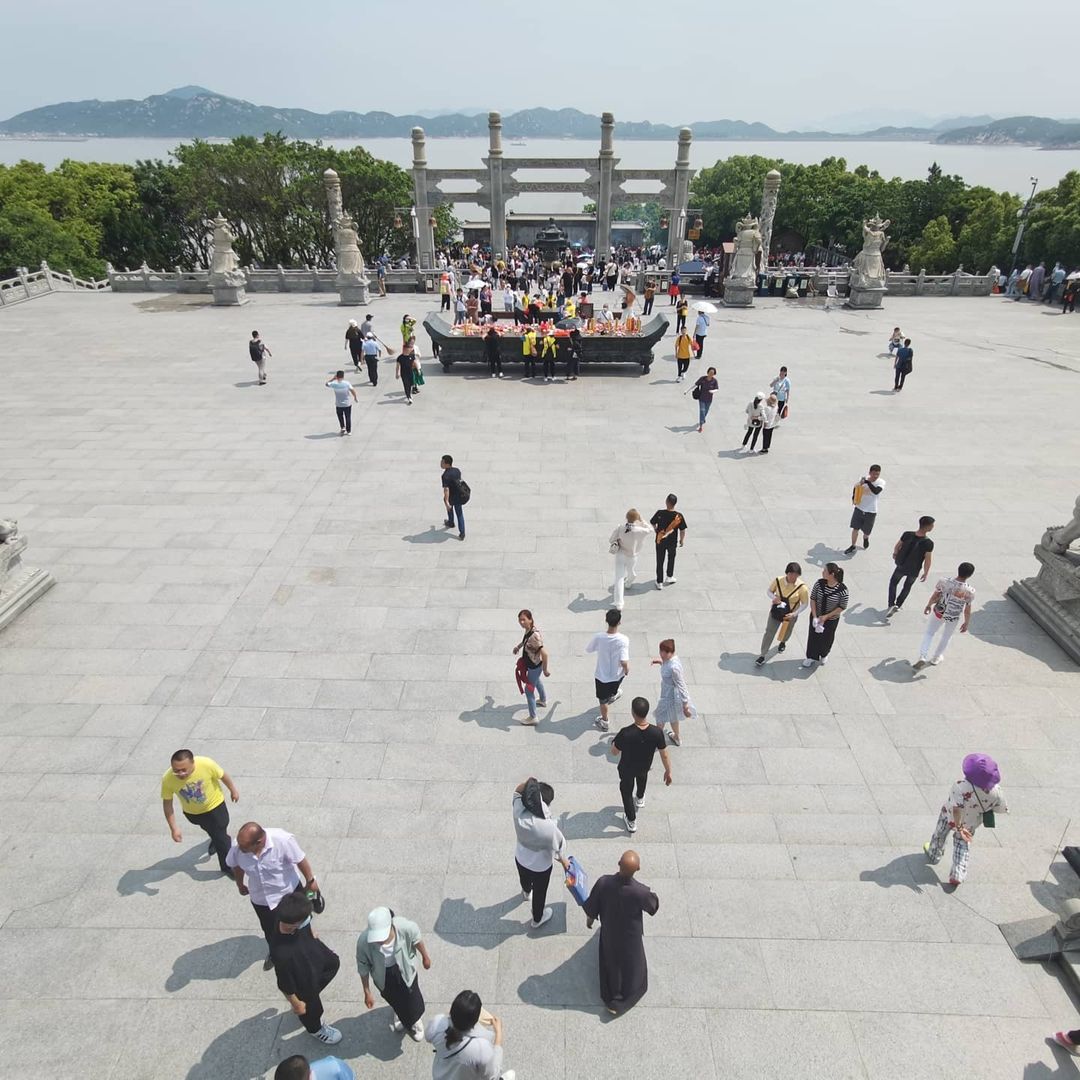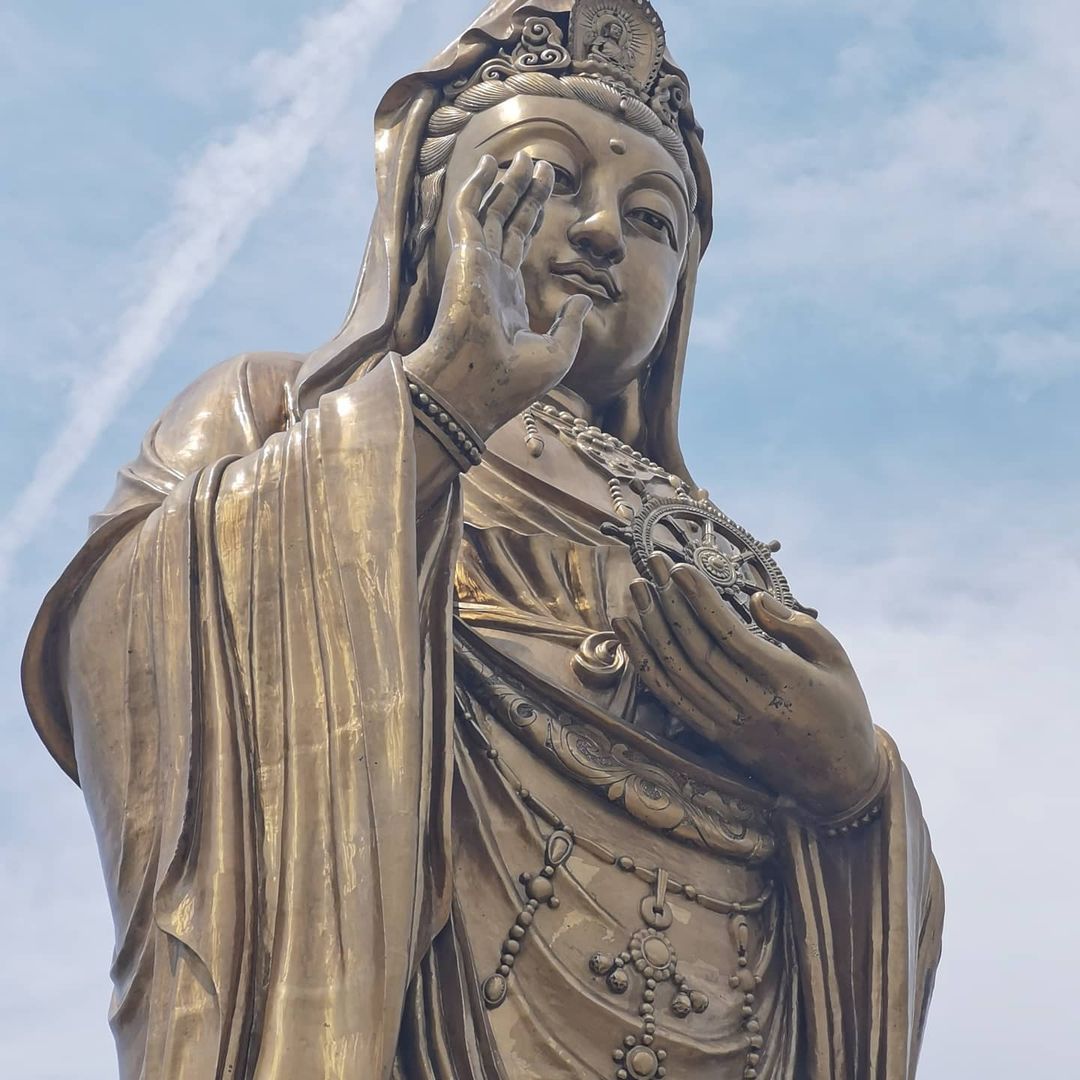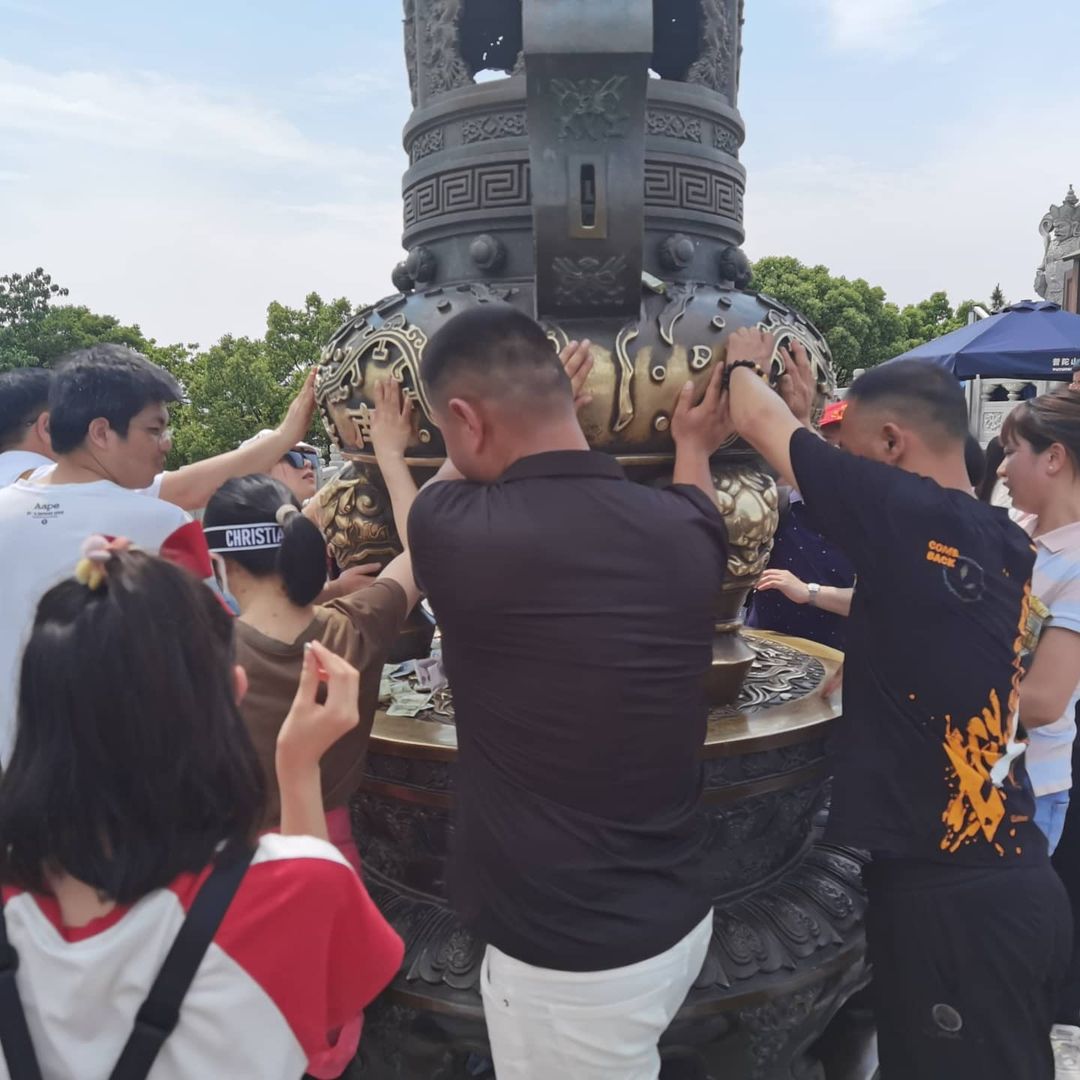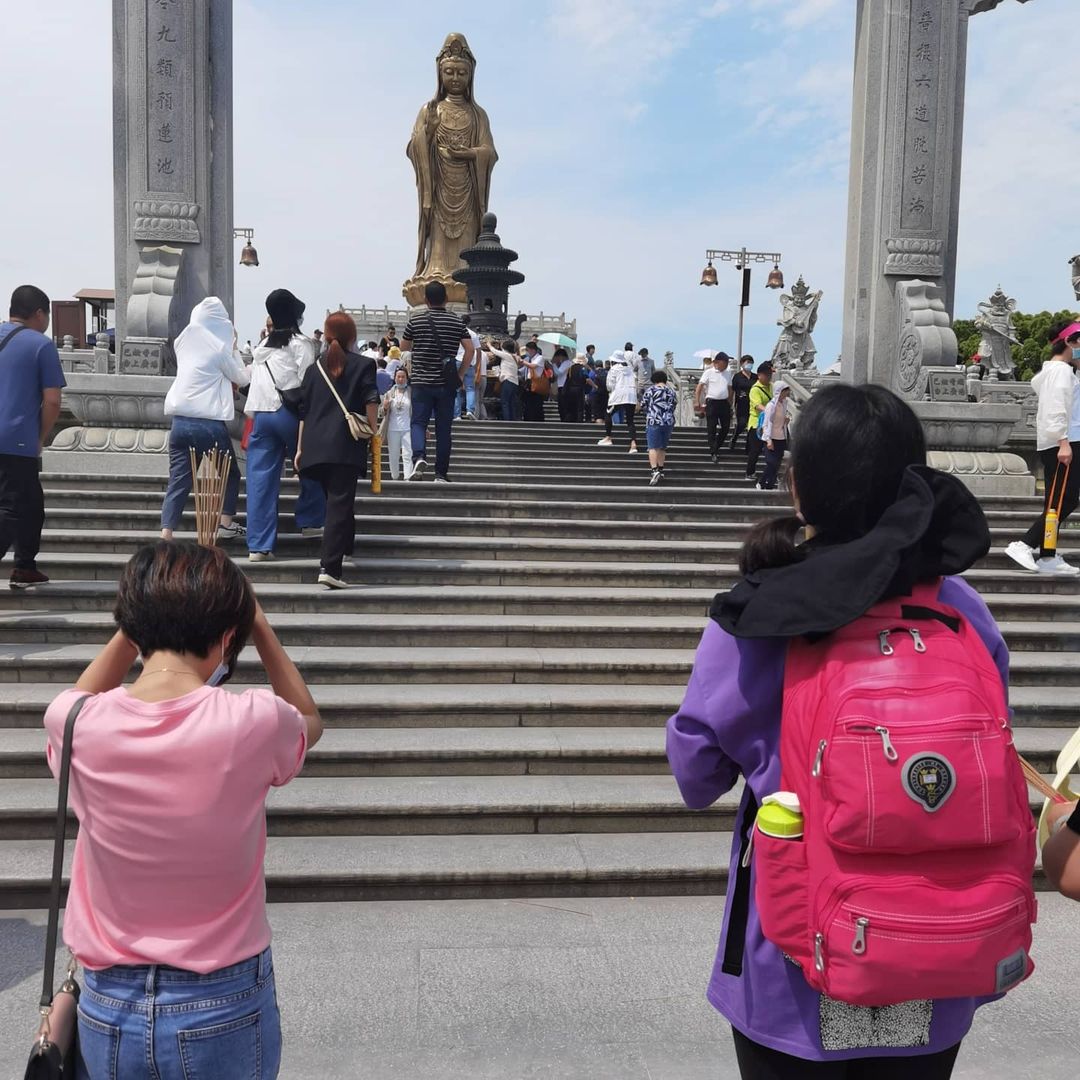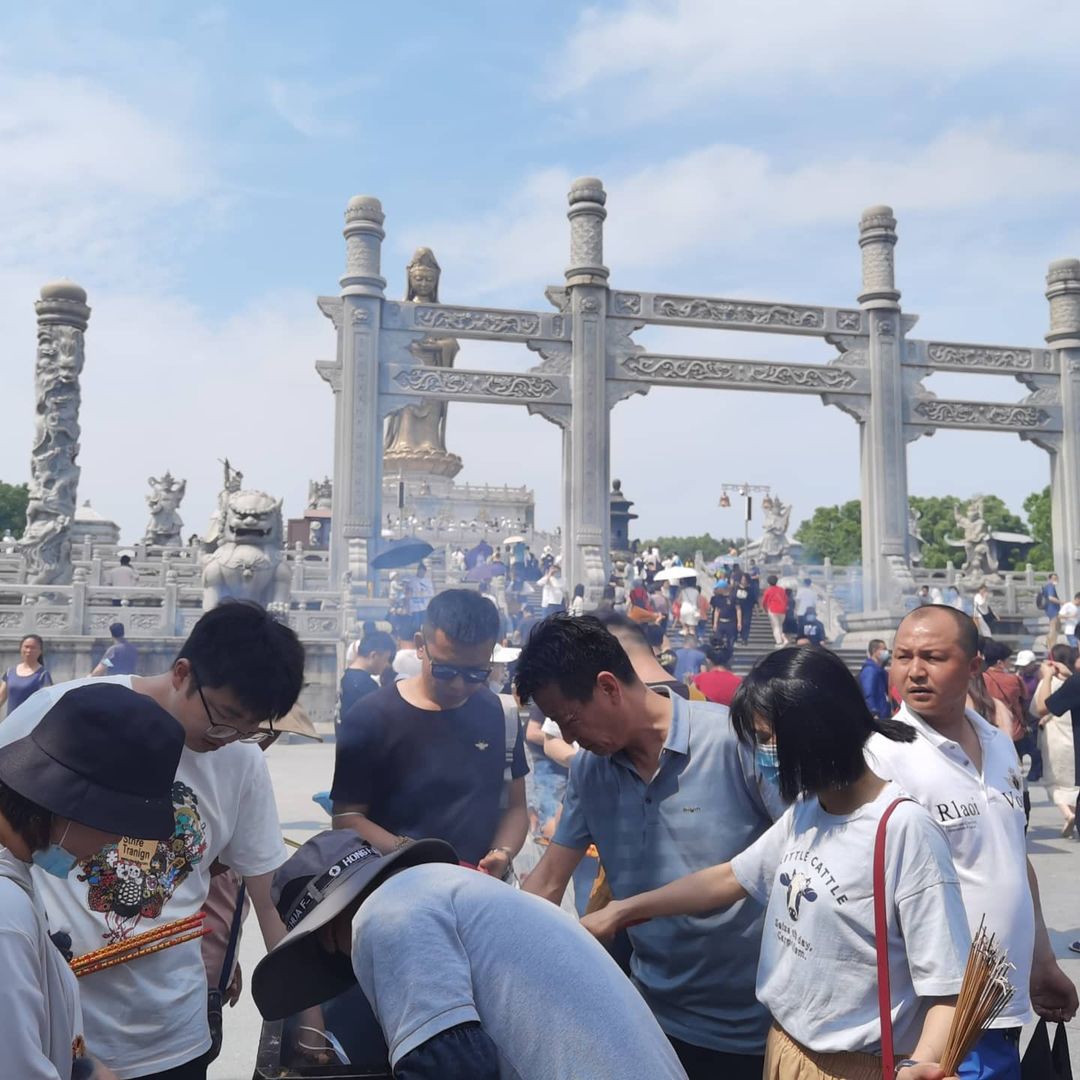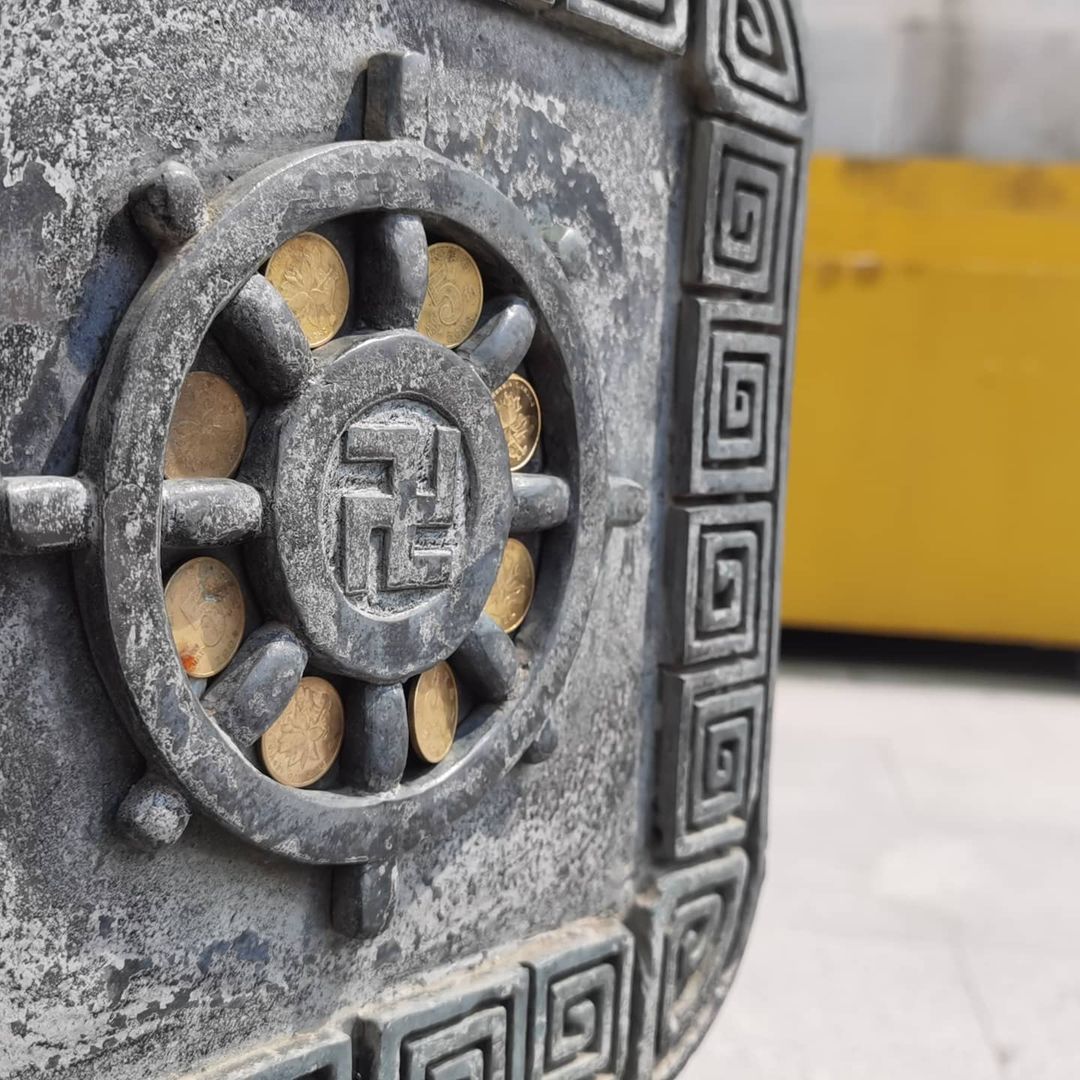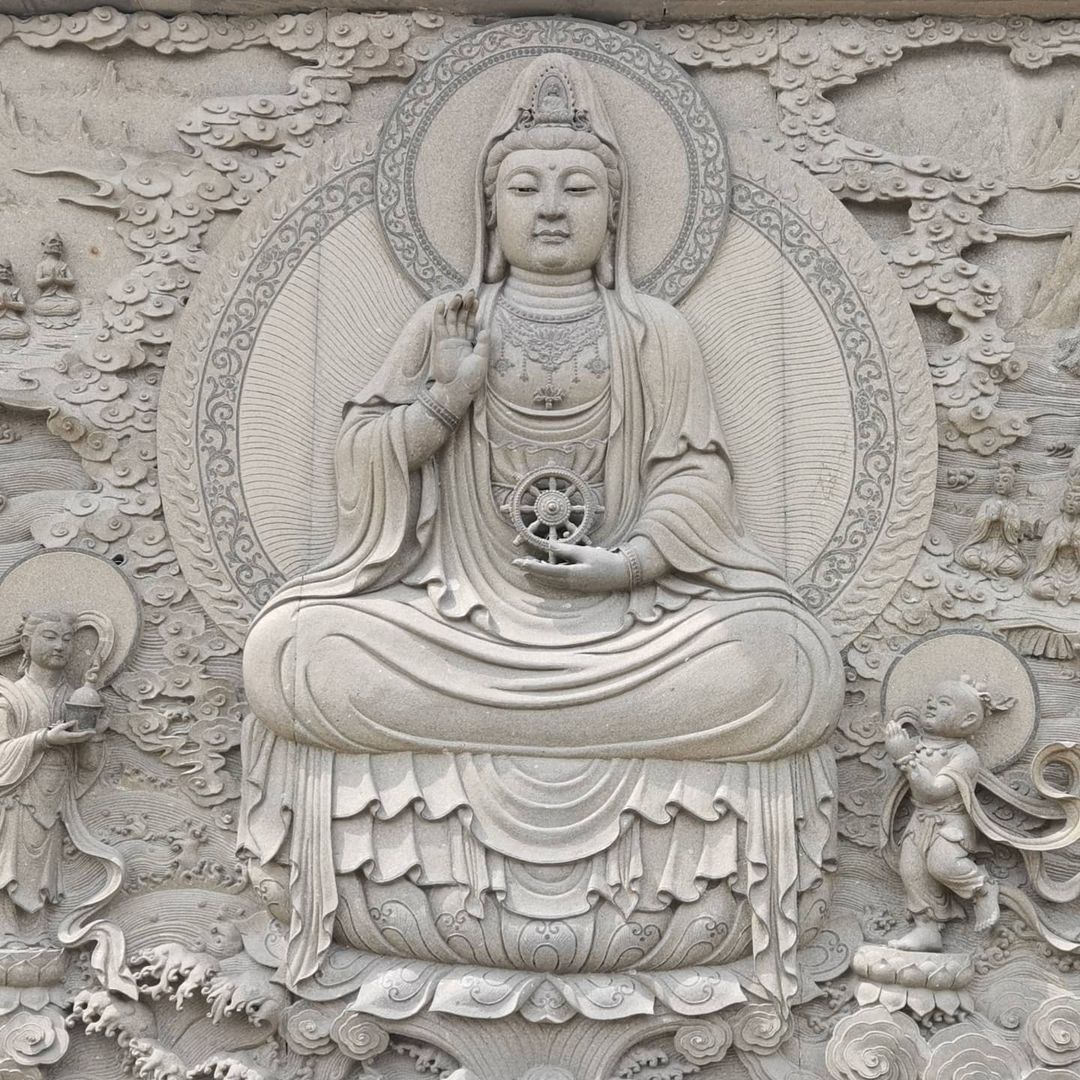She looks south and seawards and always. Putuo Shan is the dojo for Guanyin Bodhisattva. She’s originally the patron saint of seafarers, but she now gives an audience to anyone who comes with wishes. And listen she does. The three characters that make up her Chinese name (观世音 Guānshìyīn) literally means ‘the one who hears the sound of the world’.
Each year, millions of Chinese flock to the island, regardless of whether they’re devout Buddhists or not. These gods aren’t capricious. And the millions of tongues that come here per ferry carry practical wishes, praying for amends in this life rather than the next. Wishes are whispered for good health for all family members, for children to do well in school, and for offspring to be brought into this world.
I gaze at Guanyin, and it is a wonder that a thirty-three-meter-tall statue stands on this tiny island. Yet instead I am most touched by the people around me and her. They bring their homemade sacrifices and offer their time — coming all the way here from all corners of China — and kneel and pray. It’s not a live stream, not a photo. The incense smoke stings our eyes and the sun burns our skins. It’s bodily, despite Guanyin herself being so celestial.
Yet Buddhism is also a philosophy. Karma, in the original meaning, tells us that the world is not a sum of things, but rather a bundle of deeds. And to me the real meaning of worshiping Guanyin lies in behaving according to her values. That is what I take home within me.
Guanyin in her left-hand holds not the wheel of dharma but a ship’s helm, and we are all lost at sea in our own ways. I know that the world isn’t built on justice but mercy. But that is knowledge, not wisdom. Patron saint of seafarers, Goddess of Mercy, show me the way.
